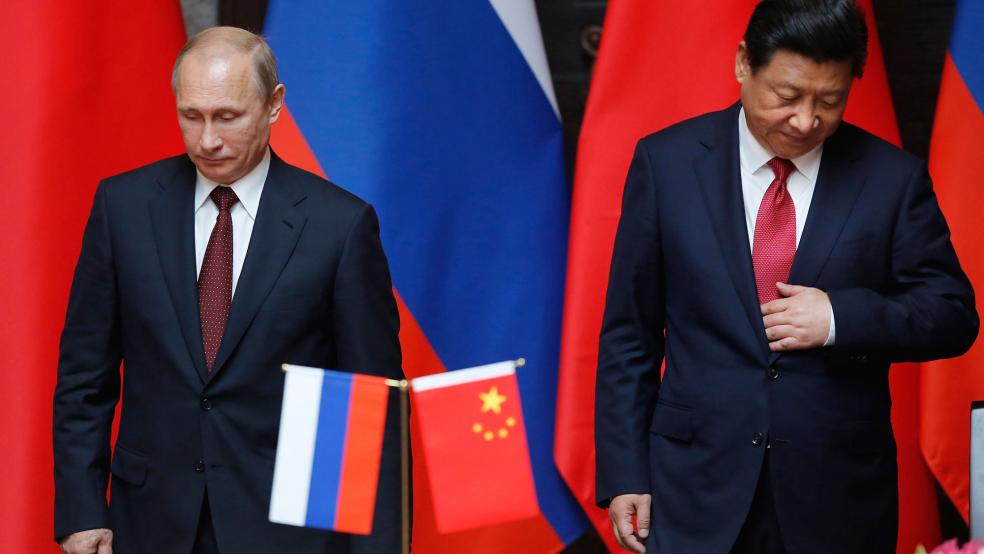In an abrupt and unexpected about face, Russia and China inked a $400 billion gas deal that marks Moscow’s biggest pivot east. The deal signals the emergence of a new Sino-Russian partnership that took over 10 years to see through to completion.
The timing of the deal came as a shock to many in the international community - both sides seemed to walk away from the deal over a pricing dispute. That’s what makes Wednesday’s announcement so bizarre; China ended up paying closer to what Russia wanted for the energy, which will be shipped into China through a pipeline in Siberia. What happened on Tuesday remains a mystery.
"Through mutual compromise we managed to reach not only acceptable, but rather satisfactory, terms on this contract for both sides. Both sides were in the end pleased by the compromise reached on price and other terms," Russian President Vladimir Putin said when announcing the deal.
Related: A Gas Deal With China Could Bail Out ‘Mother Russia’
The precise details of the deal were not disclosed. But experts speculate that one of the reasons that China was willing to pay more for fuel was environmental.
“This higher price level reflects China’s willingness to pay more for cleaner fuel, consistent with its efforts on domestic gas price reform to accommodate rising supply costs,” IHS Energy, a firm that analyzes the energy industry, said in a commentary on the deal.
The importance of this deal cannot be understated. It essentially upends the dynamics of global power and marks a significant departure from the post-Cold War order. Here are three ways the Russia-China deal changes international affairs:
1. Russia no longer has to rely on Europe to fill its coffers. European payments for Russian gas currently amount to about 40 percent of Russian state budget. This meant that Russia has to play nice with Europe in order to pay its bills.
Related: Four Reasons Why Putin Pulled Back His Troops
This deal makes the European energy market far less important to Moscow.
“Gazprom [Russia’s state-controlled energy company] is under increasing geopolitical and competitive pressure to diversify its market toward the East, while China’s gas market remains supply constrained as demand continues to surge,” IHS energy noted.
2. European institutions and opinion now matter much less to Russia. That’s bad news for Eastern European countries like Latvia and Estonia, countries that border Russia and have large Russian speaking populations.
Russia’s actions in Ukraine show that it’s not afraid to exert its influence in neighboring countries. Until this deal was signed, Europe could keep Russia in check with the subtle threat of not paying its gas bills. Russia’s decreased reliance on Europe frees it to act as it pleases in countries that Moscow believes to be in its sphere of influence.
Related: Russia Can Lose Territory, Too. It Should Worry
3. China makes a commitment toward cleaner energy. The Chinese environment is a disaster. One of the main reasons for China’s environmental problems is air pollution caused by unclean sources of energy that fueled China’s economic rise.
The fact that China is willing to pay more for cleaner energy suggests that Beijing, at the very least, is acknowledging environmental problems. It also shows that Chinese leaders are willing to spend more in an effort to improve the situation.
Yesterday, many experts and journalists (including me) speculated that the failure to secure a gas deal would chasten Russia. Today, China and Russia have turned international affairs on its head.
Once again, it appears as if Russian President Vladimir Putin is one step ahead of us all.
Top Reads from The Fiscal Times:


